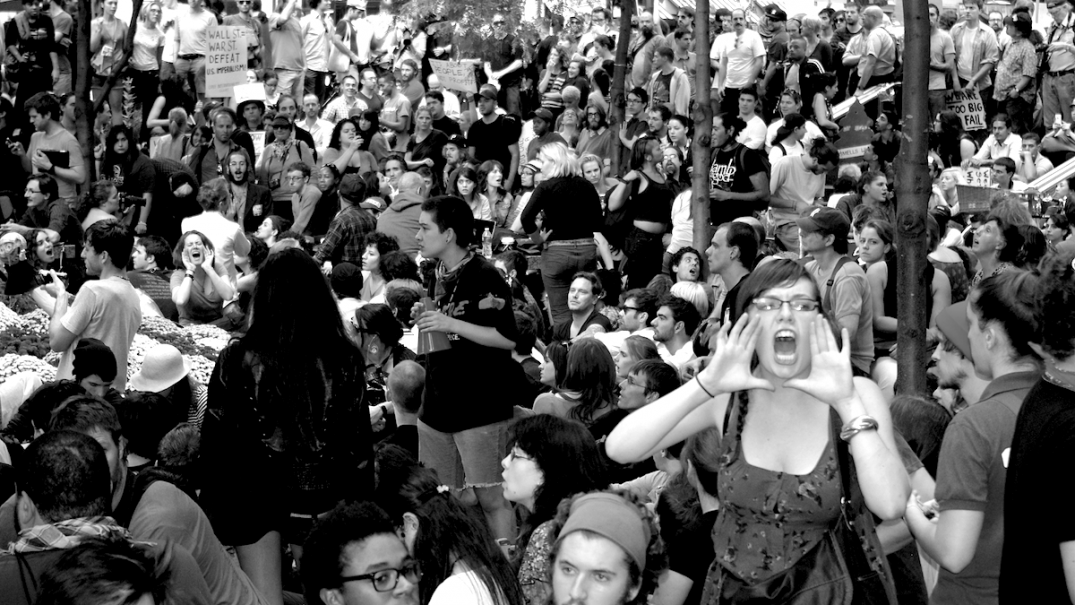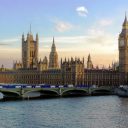What would it look like to build a politics that’s open to people but closed to big money?

Image from the Public Interest Research Centre (PIRC)
When it comes to Brexit, Labour is caught between a rock and a hard place. With both the party and its electoral base divided, and passions running high on both sides, it simply can’t match the clarity of Theresa May’s pitch for a mandate to push through a hard Brexit. So it alternates between trying to triangulate this impossible position, and trying to refocus debate onto the domestic agenda. And whatever it does, May and the Tory press accuse it of being stuffed with ‘saboteurs’ out to ‘wreck Brexit’, and of wanting to let in too many foreigners.
But this reflects something much deeper than a split in the Labour party. It reflects a more general failure on the left to work out where we stand in relation to the backlash against globalisation. On what is fast becoming one of the biggest political issues of our time, we are both deeply divided and desperately in need of new ideas. If open versus closed has joined left versus right as one of the major axes of our politics, there is no agreement about where the UK left should sit on this spectrum – and no very clear sense of what either the ‘left-open’ or the ‘left-closed’ quadrants of this new political landscape actually look like.
Of course, the right is divided too – but since the Brexit vote they have shown a remarkable ability to paper over these divisions, when many expected the Tory party to implode. More to the point, at least it’s reasonably clear what the two sides stand for – put crudely, this is about nationalism versus neoliberalism. And what we’re actually about to get with May’s hard Brexit is a chilling combination of both: closing our borders to people, but throwing them wide open to global capital.
If open versus closed has joined left versus right as one of the major axes of our politics, there is no agreement about where the UK left should sit on this spectrum.
By contrast, the left debate feels much more fragmented, and too often gets caught between a sterile status-quo liberalism and a toxic anti-immigrant politics. On the one side, we have liberal internationalists committed to maintaining free movement of people but with no serious critique of free movement of capital. Indeed, it’s often treated as part of a homogenous package of liberal values to be defended from the rise of nationalist protectionism: if you’re anti-Trump, you must be pro-free trade. On the other side, we have ‘progressive protectionists’ and Blue Labour communitarians who, in different ways, link their critiques of globalisation to an anti-immigrant politics that many find deeply excluding and dangerous.
It’s difficult to have any kind of conversation that starts from these positions and doesn’t end with people yelling ‘racist!’ and ‘neoliberal!’ at each other. Yet they both misjudge the moment we’re living through. The first fails to take seriously the profound failure of neoliberal economic orthodoxy and its role in the disaffection and dispossession that has helped to drive the Trump and Brexit votes. The second fails to take seriously the clear and present dangers of the racist scapegoating that has accompanied the rise of the far right, and the historic importance of actively resisting it. A left political project capable of rising to the challenges we face must respond to both of these things. But at the moment, the debate is so toxic that we can’t even begin to have the conversations necessary to constructing such a project.
There could hardly be a better illustration of this than the recent ugly spat between academics Wolfgang Streeck and Adam Tooze on the letters page of The London Review of Books. Streeck, a German sociologist, contends that “a little less globalisation is quite alright if it gets us a little more democracy”, while Tooze argues that for the German left to take a “protectionist, anti-EU line… would be hugely counterproductive.” It’s remarkable how rapidly this descends into petty name-calling, with Streeck dismissing Tooze’s arguments as the “faux cosmopolitanism” of a “soul-searching urban-academic middle class”, and Tooze accusing Streeck of behaviour “characteristic of anti-Semites and other conspiracy theorists”.
Needless to say, this kind of bombastic clash of white male egos doesn’t really move us forward. If we are serious about forging a left response to the rise of the far right, we need to get beyond such trench warfare and learn to exchange ideas in good faith and a spirit of humility. And if we’re serious about building long-term progressive alliances, we need to find some common ground on these issues – or they could end up tearing such alliances apart.
If we’re going to do this, perhaps we need to abandon the open/closed dichotomy altogether, and instead ask the more practical question: towards what do we actually want to be open or closed? After all, when you dig beneath the nationalist rhetoric, it’s not as though the new right fits neatly into this binary. May’s government seems perfectly comfortable combining an aggressive ‘closed to people’ agenda with an equally aggressive ‘open to capital’ agenda. Her January speech setting out her Brexit negotiating priorities proclaimed that Britain was to be “one of the firmest advocates for free trade anywhere in the world.” She also notoriously threatened that if a deal couldn’t be reached, Britain would be free to transform itself into the tax haven of Europe.
And though Trump’s trade policy is more protectionist, it is equally unlikely to seriously challenge the interests of footloose global capital. Indeed, as Nick Dearden argues in his important piece for openDemocracy, a new US-UK trade deal could accelerate the neoliberal race to the bottom on social and environmental protections. The much-trumpeted control of our laws supposedly won back from Brussels is likely to be swiftly negotiated away again, through clauses giving transnational corporations a veto over new regulation that could affect their profits.
So what would it look like to start building a progressive alternative that turned this politics on its head – open to people but closed to big money? That is the question we urgently need to be asking ourselves. I don’t pretend to have all the answers, but as a start, here are three pillars that such a politics could be built on.
1. Forging a democratic trade policy – and a movement to fight for it
Trade policy is perhaps the area where both new economic thinking and a rebuilding of the left’s capacity to mobilise is most urgently needed. From its place at the heart of the anti-globalisation movements of the ‘90s, trade has dropped off the radar of many progressive forces – the heroic efforts of anti-TTIP campaigners notwithstanding. With a wave of new trade deals on the horizon that could shape our economy for decades to come, we urgently need to rebuild a mass movement on trade that knows what it wants.
If the details of this still need to be worked out, the TTIP movement gives us a clue as to what the guiding principle should be: protecting democracy, local, national and international. This goes for both the process and the substance of trade deals. We must resist deals negotiated behind closed doors which create new ways for corporate vested interests to subvert democratic processes – whether through ‘secret courts’ or veto powers over new laws – and which rig trade rules in favour of the wealthy. Instead, we should demand that trade negotiations be transparent and accountable to citizens.
We must resist deals negotiated behind closed doors, which create new ways for corporate vested interests to subvert democratic processes.
Likewise, free-trade dogma should no longer be able to override the efforts of local policymakers to support and shape their local economies in pursuit of social and environmental objectives. Particularly in a context where city and regional authorities are one of the key remaining sites of progressive power, they need to be able to use the tools at their disposal to build democratic ownership and create local jobs. For instance, Ontario’s Green Energy Act made renewable subsidies conditional on companies meeting ‘buy-local’ requirements, to ensure that public money was used to support local jobs. Having been held up as an example by energy democracy activists the world over, this was ruled unlawful by the WTO. A similar fate has befallen buy-local policies included in India’s solar energy programme.
This is especially crucial to building a progressive response to the politics of Trump and Brexit. Neoliberal free-trade orthodoxy is premised on the idea that if all economic activity is sent to wherever it can be done most ‘efficiently’, everyone will be materially better off. The loss of local jobs and industries in that process is simply collateral damage. It doesn’t matter if we destroy a job in a steel mill in Sheffield, because we’ll create a better one in a bank in London. In the last year, this inhuman economic calculus has crashed head-first into the realities of life in deindustrialised communities, and the ballooning inequalities it has helped to create.
We cannot afford to allow the right to pose as the defenders of these left-behind communities whilst doing nothing to address these problems.
Of course, from a human perspective, this is nonsense. The fact that the steel mill was the backbone of the local community, a source of identity, and the heart of the local economy are worth something. The fact that most local people are never going to get a job in a bank in London, and that from their point of view the steel mill has been replaced by precisely nothing – or, at best, by an insecure job in a call centre – matters irrespective of whether the bank adds more to GDP. We cannot afford to allow the right to pose as the defenders of these left-behind communities whilst doing nothing to address these problems. And by insisting on our right to democratically rebuild and shape our local economies, we can do justice to the importance of community and identity without being drawn into anti-immigrant politics.
2. Taming global finance – at home and abroad
The impetus for financial reform, never very strong to begin with, now seems to have been buried entirely beneath the rubble of the last year’s political earthquakes. Trump may have cloaked himself in the rhetoric of banker bashing, but his actions in office speak otherwise. As one anonymous Goldman Sachs executive reportedly said, “If I’d known how good Trump was going to be for Wall Street, I’d have campaigned for him.”
This leaves the space wide open for a progressive agenda to truly tame finance. With private debt rising and post-crisis reforms unravelling, the next financial crisis could be just around the corner – and we need to be ready with a response. And, as Nicholas Shaxson has persuasively argued, there’s no point us being morally outraged by the tax avoidance of the global elite unless we’re seriously willing to take on the financial system that enables and encourages it.
Trump leaves the space wide open for a progressive agenda to truly tame finance.
The question is whether and how new forums for the global governance of finance can be built. If the UK is no longer going to be bound by EU law, we need to come up with new ways to control global mega-banks and their weapons of financial mass destruction. Measures like financial transaction taxes and higher capital buffers all work best at an international level. And perhaps we need to resurrect the idea of capital controls – to stem the tidal waves of hot money fuelling bubbles and crises that wreck lives, from Iceland, Ireland and Greece to Thailand, Mexico and Argentina. Paradoxically, this is one area where ‘less globalisation’ actually requires more global co-operation. Prospects for this may look gloomy in the current climate – but we must do all we can to avoid it becoming unthinkable.
Having said this, this agenda doesn’t begin and end with regulation. The history of EU financial reform shows us that, captured and compromised as reform began, it is now being methodically unravelled by bank lobbyists while the political circus moves on. If we leave our banking behemoths intact and rely on international law to constrain them, we’ll always be facing an uphill struggle. We need to change the structure of the system itself – to break up the power of mega banks and build democratic alternatives in their place.
Perhaps surprisingly, I actually think this is a counsel of optimism – because it means that the project of fixing finance can begin at home, and indeed can be started even without progressive governments in power nationally. A good example is the work of the Democracy Collaborative and the Public Banking Institute in the US to build a new generation of public banks at the state level. In the UK, a good place to start would be with RBS – by calling loudly for the bank we already own to be turned into a network of local public banks, mandated to lend to their local communities rather than to speculate on international markets and bankrupt small businesses.
3. Giving no quarter to anti-immigrant politics
We can’t win by aping the clothing of the right and promising to curtail immigration. Even if we could, it would be morally unjustifiable to do so in a climate of increasingly open and virulent racism and xenophobia. The scapegoating of outsiders to distract from an unjust economic system is as old as the hills, and the left should have no truck with it. We must not play into the narrative that immigration is somehow to blame for the stagnation of wages and the loss of jobs in ‘left behind’ communities, when all the evidence suggests this is not the case.
The Tories’ attempt to deflect blame for the consequences of austerity onto immigrants is open and blatant. In her January Brexit speech, Theresa May claimed that the “sheer volume” of immigration in recent years “has put pressure on public services, like schools, stretched our infrastructure, especially housing, and put a downward pressure on wages for working class people”.
The scapegoating of outsiders to distract from an unjust economic system is as old as the hills, and the left should have no truck with it.
But it’s not immigration that is driving down wages for working people in the UK. It is the smashing of trade unions, the power of footloose capital and the ease with which it can offshore jobs to cheaper jurisdictions. Research by the LSE has found that “the big falls in wages after 2008 are due to the global financial crisis and a weak economic recovery, not to immigration.” And the housing crisis has much more to do with a bloated, bubble-blowing financial system than with too many people coming into the country.
These are dangerous times, and unless we can offer a vision for a better future that doesn’t rely on promising to keep out foreigners, we are heading for truly terrifying waters. This doesn’t only mean defending free movement of people. It means keeping the dangers of xenophobia and racism at the forefront of our minds in all of our thinking. It would be a historic mistake to try and offer an anti-elitist economic agenda while triangulating or fudging on immigration.
Recently a fellow finance activist showed me a propaganda poster from Nazi Germany bearing the slogan “Smash the enemy, international high finance”. It was a forcible reminder that hating economic elites and hating a racialised ‘other’ are very far from being mutually exclusive. If we want to develop a radical democratic left platform – and I think we must – we would do well to remember that any narrative about democracy involves an implicit ‘us’, and any narrative about elites involves an implicit ‘them’. It’s incumbent on us to be very careful indeed about who is included in that.
Of course, none of this solves the immediate problem of where the left should stand on Brexit, or what its rhetorical stance should be in a moment of increasingly febrile nationalism. These questions are fraught with difficulties of their own. But if we try to resolve them without first having serious conversations about the platform we want to stand on, we shouldn’t be surprised if we tie ourselves in knots.





